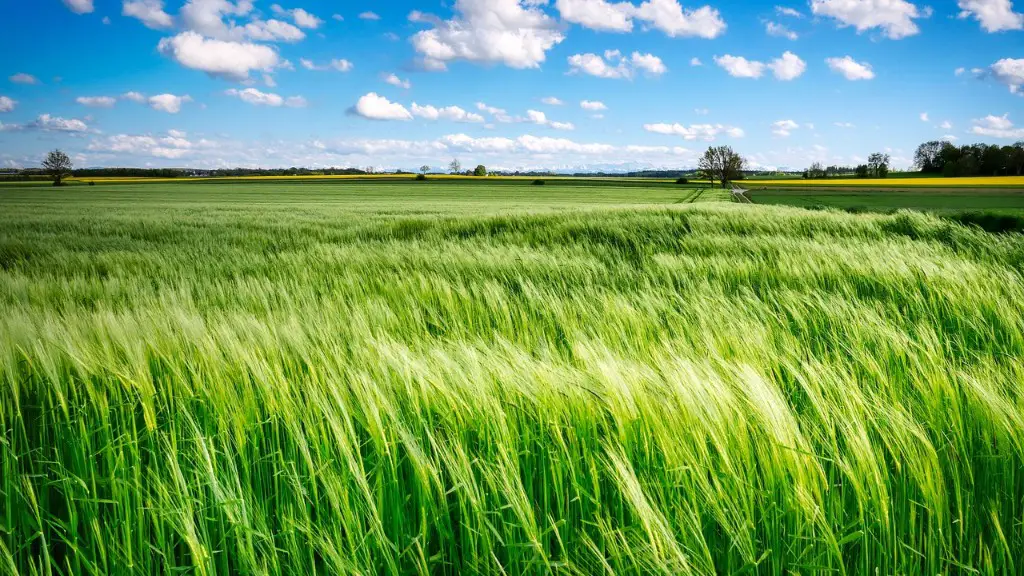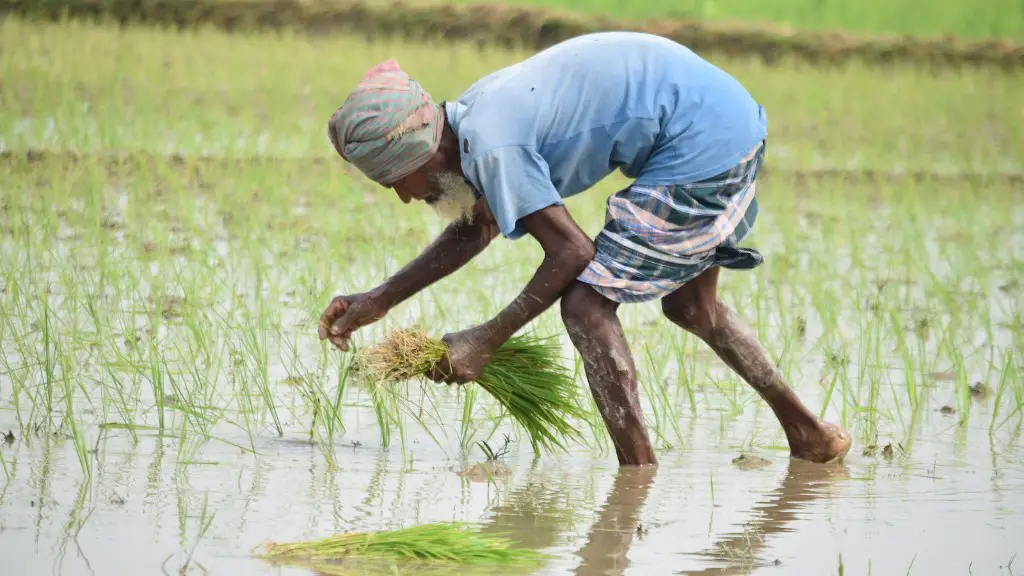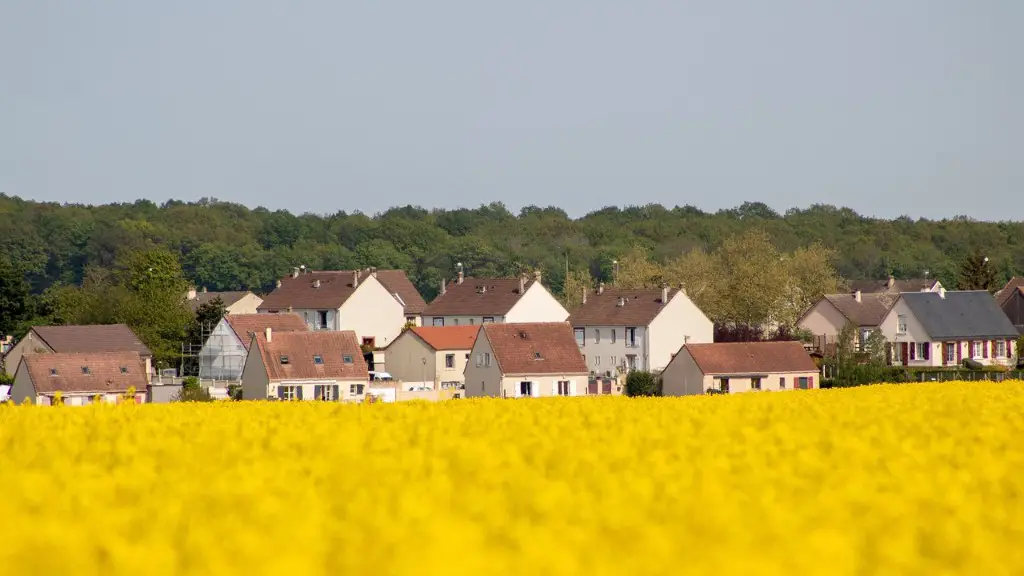SAE Agriculture is a set of technical standards for agricultural machinery. Its objectives are to promote technical cooperation, standardization and information exchange in the field of agricultural machinery. SAE Agriculture is part of the Society of Automotive Engineers (SAE).
The Society of Agricultural Engineers (SAE) is a professional organization that provides educational and networking opportunities for agricultural engineers. The organization also sets standards for the profession and advocates for the agricultural engineering industry.
What are SAE examples?
There are many businesses that can be started in the agricultural industry. A few examples would include raising and selling animals or crops, building and selling agricultural equipment, buying and reselling feed, seed or fertilizer, owning a pet care business or a business that programs and installs computer equipment in tractors. There are many opportunities for those who are interested in starting a business in the agricultural industry.
The four types of SAE programs are exploratory, entrepreneurship, placement, and research/experimentation. SAE programs should be based on your career interests and available opportunities. Your agriculture teacher, your family, and other interested persons can be real assets in helping you develop your SAE program.
What is a SAE definition in FFA
1. Start early: The earlier you start your SAE, the more time you will have to explore different options and figure out what you’re passionate about.
2. Get involved: Talk to your local FFA chapter and agricultural educators to get involved in your community and learn about different SAE opportunities.
3. Be creative: Your SAE can be anything that you’re passionate about, so get creative and think outside the box.
4. Be patient: Don’t be discouraged if you don’t see results immediately – success with your SAE takes time, patience and dedication.
5. Have fun: Remember that your SAE should be something that you enjoy, so make sure to have fun and make the most of the experience!
There are five different types of Immersion SAEs that students can participate in to gain real-world experience. These include Placement/Internship SAE, Ownership/Entrepreneurship SAE, Research: Experimental, Analysis or Invention SAE, School-Based Enterprise SAE, and Service-Learning SAE. Each of these types of SAEs provide students with different opportunities to learn and gain valuable experience that can be applied in the real world.
What are 3 types of SAE programs?
SAE research programs are designed to help students gain real-world experience in their chosen field of study. There are three major kinds of research SAE programs: experimental, analytical and invention. Experimental research programs allow students to work on projects that are still in the development stage. Analytical research programs provide students with the opportunity to analyze data and solve problems. Invention research programs give students the chance to create new products or services.
Service-learning is a type of experiential learning that integrates meaningful community service with instruction and reflection to enrich the learning experience, teach civic responsibility, and strengthen communities.
School-based enterprise (SBE) is a type of experiential learning that allows students to run their own business within a school.
Research SAEs allow students to conduct research on a topic of their interest and present their findings to a panel of experts.
Placement/internship SAES provide students with the opportunity to work in a professional setting and learn about a particular career field.
Entrepreneurship SAEs give students the opportunity to develop and pitch their own business ideas.
Foundational SAEs provide students with the opportunity to explore a variety of career fields and learn about the different types of SAEs.
What is the purpose of an SAE?
A Supervised Agricultural Experience (SAE) is an opportunity for students enrolled in a school-based agriculture, food, and natural resources program to extend their learning beyond the classroom and into a real-world setting. SAEs can take many different forms, such as internships, apprenticeships, research projects, and entrepreneurial ventures. All SAEs must be approved by the student’s school in order to receive credit.
There are six types of SAEs that students can choose from: exploratory, placement/internship, ownership/entrepreneurship, research, school-based enterprise, and service learning.
Service learning is a great way to get involved in your community and learn new skills. Placement/internship opportunities can give you real-world experience in your chosen field. Ownership/entrepreneurship SAEs can help you develop business skills and learn about starting your own company.
Research SAEs are perfect for students who want to explore a topic in depth and learn more about the scientific process. School-based enterprises are a great way to get involved in your school and learn about running a businesses.
No matter what your interests are, there is an SAE for you!
What are the SAE topics in FFA
The SAE Idea Cards are a great way to get ideas for your SAE project. Each card provides ideas for all six SAE types, so you can choose the one that best fits your interests and skills. Whether you’re interested in entrepreneurship, research, service-learning, or anything else, the SAE Idea Cards will help you get started on your project.
The Society of Automotive Engineers (SAE) is a professional organization that sets engineering standards across various industries. SAE originated in the early 1900s as the Society of Automobile Engineers but soon became the Society of Automotive Engineers, reflecting its growing influence beyond the automobile industry. SAE’s standards are voluntary, but they are widely respected and adopted by many organizations.
What are the 8 types of supervised agricultural experiences SAE?
SAE Types
There are four types of SAE: paid placement, unpaid placement, entrepreneurship, and agriscience research.
Paid Placement: A paid placement SAE is an opportunity to receive training and experience in a certain field or occupation. This type of SAE can be full-time or part-time, and may last anywhere from a few weeks to a year.
Unpaid Placement (Volunteer): An unpaid placement SAE is an opportunity to gain experience in a certain field or occupation without receiving any pay. This type of SAE is usually part-time, and may last anywhere from a few weeks to a year.
Entrepreneurship: An entrepreneurship SAE is an opportunity to create and operate your own business. This type of SAE can be full-time or part-time, and may last indefinitely.
Agriscience Research: An agriscience research SAE is an opportunity to conduct research in the field of agriculture. This type of SAE can be full-time or part-time, and may last indefinitely.
The goal of agricultural education is to provide students with the skills and knowledge necessary to make informed decisions about their careers and education. Agricultural education programs provide students with an opportunity to explore various agriculture subjects, develop self-confidence, and gain educational and agricultural experiences in specialized areas of agriculture.
What are the benefits of a SAE
SAE International is a professional membership organization for engineers and related technical experts in the transportation industries. SAE members have access to a variety of resources and benefits, including first-to-market technical insights, best-in-class technical resources, and connections with a global network of leading industry experts. Members also receive discounts on professional development, publications, and more.
SAEs are a great way to explore different careers in agriculture and get a feel for what each one entails. They can also help you refine your career choice by giving you a better understanding of the expectations and skills needed to be successful in that field. SAEs are a valuable tool for developing specific skills that will help you succeed in the agricultural industry. Overall, they provide a well-rounded and enjoyable school experience.
What are 5 benefits of a SAE?
SAE programs are a great way for students to explore various agricultural subjects and get educational and agricultural experiences in a specialized area of agriculture. They can also help students make career and educational decisions and develop self-confidence.
There are many factors to consider when choosing an SAE project, but some of the key factors are experiences and educational background, personal interest, financing, career interest, encouragement and support, and availability of resources. Setting SMART goals allows for evaluation of the SAE and promotes progress, but only if students work toward reaching their goals.
Warp Up
The Society of Automotive Engineers (SAE) Agriculture Division is a division of SAE International, a professional organization for mobility engineers. The division is dedicated to advancing the state of the art of agriculture equipment and systems through engineering standards and technical publications.
The SAE Agriculture program is an excellent way to learn about different aspects of agriculture and potentially have a career in the field. The program offers a variety of courses that cover topics such as crop production, soil science, animal science, and agricultural business. Students in the program have the opportunity to learn about the latest technology and practices in the agriculture industry. The SAE Agriculture program is a great way to get started in a career in agriculture.





